December 5, 2018
Santa Cruz County Sierra Club Group
Executive Committee Candidate Statements
2019: Vote by January 12th! (it's been extended)
Only 4 seats are available and ballots are due by January 12th, 2019!
Meet your candidates:
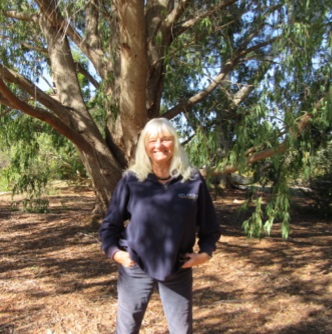
Gillian Greensite
It has been a privilege to serve on the Sierra Club Executive Committee for the past 3 years and be elected chair for 2018. In this leadership role I attended the national Sierra Club Assembly, which afforded the opportunity to learn of the Sierra Club’s profound shift towards greater inclusivity. If elected to a further 3 years on the Executive Committee, my goal would be to bring this focus to the local level. I represent the Sierra Club on the Cowell Water Coalition with city, county and non-profit groups. We have been successful in significantly reducing water pollution at this popular beach. I wrote the Sierra Club’s position opposing the weakening of heritage trees’ protection by the city of Scott’s Valley. At the Board of Supervisors, I’ve represented the Sierra Club to ensure that environmental protection issues were incorporated into the new Cannabis regulations. As a Sierra Club leader I’ve made connections with other local environmental groups such as Save Our Shores to promote a ban on plastics and initiated connections with other groups including the International Dark Sky Association (IDA), which aims to combat light pollution in our county. On a personal note, I’m a year-round ocean swimmer, love hiking, reading, painting and writing; am a certified California Naturalist and have been active in local environmental politics for the past 40 years. I hope for your support!
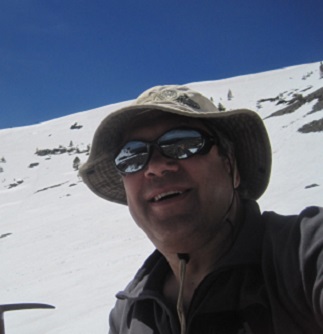
Mike Guth
I’d like your support to return to the Executive Committee after a having taken a (self-imposed) break from Club leadership roles. I have been both Conservation Committee Chair and Executive Committee Chair in the past. I’m concerned that the Group has become a bit City-centric, and I’d like to add a more County-wide focus. I bring an extensive background in the legal and administrative aspects of conservation. My priorities include habitat protections, coastal waters and lagoon issues, oversight of development in the County, and forest and stream protections.
I serve or have served on numerous County and regional Boards and Commissions. That experience, my passion for protecting the environment, and my background as an attorney have combined to empower my personal contributions. I ask for your support as I seek election to the Executive Committee.
I serve or have served on numerous County and regional Boards and Commissions. That experience, my passion for protecting the environment, and my background as an attorney have combined to empower my personal contributions. I ask for your support as I seek election to the Executive Committee.
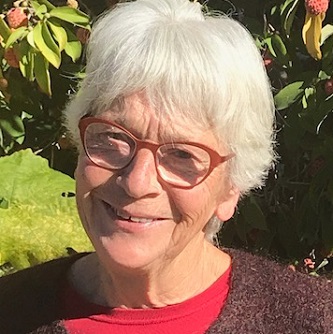
Jane Mio
Never before in my life have I have been so determined to work ceaselessly on protecting what is precious to us - - the environment and its magnificent biodiversity of wildlife habitat. The reason for my energized dedication is I am not willing to accept the federal undermining of environmental policies and treaties, or the rapid, dense local rezoning and development that will affect vulnerable natural resources within our communities.
My previous social/environmental involvements taught me that ill-conceived environmental or social actions are preventable by dedicated, determined people and organizations, who can change the course of policies and developments that pose grave environmental and social impacts.
Because of these previous lessons I cultivated strong, supportive Sierra Club alliances with other environmental groups such as Santa Cruz Bird Club, San Lorenzo Valley Women’s Club(SLVWC), Santa Clara Audubon Society and the Committee for Green Foothills.
Thanks to supportive fellow Sierra Club Committee members, I am engaged with the SLVWC in their work on the PG&E's Fire Safety Program of tree removal. I currently serve on the "Utility Wildfire Prevention Task Force." I am thankful for the SLVWC's recommendation of me for the Sierra Club Ex Com position. I lead the Sierra Club proposal to have the City Planning Department incorporate our Bird-safe Design Standards.
Thanks to supportive fellow Sierra Club Committee members, I am engaged with the SLVWC in their work on the PG&E's Fire Safety Program of tree removal. I currently serve on the "Utility Wildfire Prevention Task Force." I am thankful for the SLVWC's recommendation of me for the Sierra Club Ex Com position. I lead the Sierra Club proposal to have the City Planning Department incorporate our Bird-safe Design Standards.
As a current Sierra Club ExCom member, I am grateful for your vote to return me to the ExCom so I may continue to work hard for environmental protection and for you.
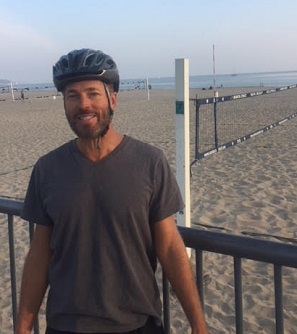
Karsten Mueller
I’m running for Sierra Club Executive Committee because I want to help restore Earth starting locally. I think one of the best ways to do that is through creative, practical strategies that support wildlife, carbon sequestration, affordable green housing, improved transportation, abundant water and dark skies in a thriving community and world that we love.
I earned a BA in Environmental Planning, an MS in Nutrition and a PhD in Environmental Studies. For almost 30 years I have contributed as an Environmental Consultant, University Instructor and Environmental Activist.
During my 23 years in Santa Cruz I also served on several political bodies, including: City of Santa Cruz Water Commission, Water Conservation Subcommittee, Integrated Water Plan Committee, San Lorenzo Urban River Project Working Group and Green Building Working Group. Lately I’ve been actively promoting regenerative aquaculture and agriculture, native plant restoration projects and ecosystem restoration camps.
As a member of the Sierra Club Executive Committee I will champion positive solutions to our most critical and interrelated issues such as: wildland and farmland preservation and restoration, carbon sequestration, housing, transportation, water and dark skies.
I earned a BA in Environmental Planning, an MS in Nutrition and a PhD in Environmental Studies. For almost 30 years I have contributed as an Environmental Consultant, University Instructor and Environmental Activist.
During my 23 years in Santa Cruz I also served on several political bodies, including: City of Santa Cruz Water Commission, Water Conservation Subcommittee, Integrated Water Plan Committee, San Lorenzo Urban River Project Working Group and Green Building Working Group. Lately I’ve been actively promoting regenerative aquaculture and agriculture, native plant restoration projects and ecosystem restoration camps.
As a member of the Sierra Club Executive Committee I will champion positive solutions to our most critical and interrelated issues such as: wildland and farmland preservation and restoration, carbon sequestration, housing, transportation, water and dark skies.
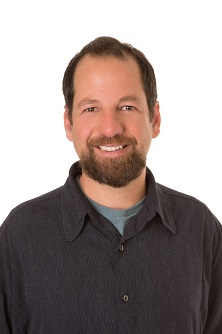
Micah Posner
The Sierra Club is a special place where people with shared values work together to improve the world. I want to support the Club by working on the Santa Cruz Executive Committee.
Open Space: I led mountaineering trips for Outward Bound and climbed in the Sierras and the Himalayas. I worked to protect Castle Rock State Park, the Moore Creek Reserve and the Westside Homeless Garden and stopped a road proposal through the Great Meadow of UCSC.
Energy: I took leadership in the campaign to stop a sales tax initiative to widen Highway One, and to create the City’s Climate Action Plan. I led efforts to improve bicycle infrastructure including bike lanes on Soquel and Beach Street. I co-founded Friends of the Rail Trail.
On the City Council from 2012 to 2016, I voted to protect Santa Cruz’s heritage tree ordinance, opposed a mercury emitting crematorium, stood up against the desal plant, and got funding for the first section of rail trail.
My family generates our electricity via solar panels and stores rainwater for our garden and fruit trees. I ride a bicycle and walk for transportation. I go backpacking and climbing with my wife and two young daughters. For my 50th birthday, I paddled a stand up board from Santa Cruz to Monterey.
I work closely with many of the current leaders of the local Club and have been endorsed by current and past Ex-Com members Mark Mesiti-Miller, Mary Odegaard and Rick Longinotti.

Bruce Sawhill
I believe the time to work actively to protect the environment is now and always. We live in a world that is increasingly “man-made”. We can no longer consider Humanity separate from Nature.
I have a scientific background which is valuable when entering debates often dominated by emotions. I am a Stanford PhD and have worked in physics, ecology, economics and complex systems and have taught and published in all of those fields. My particular expertise is transportation as an instrument of social equity and as an environmental influence, and I am a previous Board Chair of Friends of the Rail and Trail.
My quantitative background is valuable because most decisions involving people and the environment involve tradeoffs, and I bring a rational framework to understanding those tradeoffs and framing debates. I am also a musician, which teaches me to realize that there are essential elements of life that cannot be quantified that nonetheless make life worth living.
My personal “natural philosophy” is summarized in these lines from Robinson Jeffers:
“Integrity is wholeness, the greatest beauty is
Organic wholeness, the wholeness of life and things,
the divine beauty of the universe.
Love that, not man apart from that,
or else you will share man’s pitiful confusions,
or drown in despair when his days darken."
Organic wholeness, the wholeness of life and things,
the divine beauty of the universe.
Love that, not man apart from that,
or else you will share man’s pitiful confusions,
or drown in despair when his days darken."
I welcome an opportunity to serve on the Sierra Club ExCom to take bold steps towards a more sustainable future (with sensible transportation), in our chapter and beyond.
---------------------------------------------------------------------------------
Additional Questions:
1) How long have you been a member of the Sierra Club?
Gillian: A member for fifteen years.
Mike: I joined the Club in 2001; I had been doing extensive conservation work as a private citizen and was asked to join the Conservation Committee (and the Club) at that time, which I did.
Jane: I have been a Sierra Club member since 1996.
Karsten: I first became a member in college and have been a member many years since then.
Micah: Twenty years or so. I’ve served on the Political Action Committee for a couple of years and was on the Transportation Committee before that.
Bruce: On and off (mostly on) for 40 years.
2) What do you view as the most pressing environmental issue facing Santa Cruz County?
Gillian: All environmental issues are ultimately connected. Climate issues are of global urgency. At the same time, smaller issues such as the struggle to save the Beach Flats Community Garden inspire and connect people, which is how movements for change evolve. Overdevelopment, open space and land use issues are also huge.
Mike: I think many problems are interrelated. Development pressures to accommodate growing populations lead to environmental impacts (riparian impacts, forest impacts, habitat impacts), and lead to increased traffic and other issues. Unfettered development without proper adherence to environmental law is a big problem.
Jane: We are headed for rapid development projects, coupled with major rezoning, that appear to exclude the environmental review process required to protect and/or enhance the unique fauna/flora biodiversity of diminishing natural areas within the County. Proper scientific environmental evaluations are required to avoid long-term, irreversible impacts.
Karsten: One of our most pressing issues is affordable housing that preserves open space and encourages walking, bicycling and mass transit. One approach is community-guided smart growth, that includes affordable housing, in places such as downtown and along transportation corridors.
I also support easier and cheaper permits for auxiliary dwelling units (ADU’s). And, I think we can consider a tiny home development for some chronically-homeless people, as other communities have done successfully.
Micah: Changes to the world’s climate will flood parts of our county and burn other parts. We need to be part of the solution by reducing our emissions countywide, focused on our biggest single source- a transportation system dominated by automobile use.
Bruce: Local concern: Water supply. The penalty for screwing this up (saltwater intrusion, unsustainable agriculture, reduced capacity) is large and long-lasting and affects everything else in our County-economic sustainability, housing, etc.
3) What is one of your favorite places to explore in our County?
Gillian: Hard to choose just one. We are blessed with so many! Pogonip is a favorite as well as Gray Whale Ranch, which I explored long before it became a state park. It’s now an example of how overuse creates environmental challenges
.
Mike: I’m an ocean person, and I regularly swim out to sea through the kelp beds at the tip of Pleasure Point, where I live (usually daily and no wetsuit!). I love cruising out there in the water. I also like to ride my bike (road bike) from home up to the redwoods.
Jane: Our County is the perfect place to explore water bodies, which are my favorites. I explore the San Lorenzo River frequently, observing and learning something every time and share with others either at the river or in a regular written online account.
Karsten: Pogonip because it’s beautiful and close.
Micah: The Upper Campus/ Natural Reserve of UCSC.
Bruce: Big Basin is always great, and it is especially fun to do a long one-way hike with a bus trip on either end, reminding me of “streetcar hikes” I used to do in Germany.
4) What aspects of the Club’s work are you most interested in being involved with?
Gillian: To continue work on the Conservation Committee; to develop a more cohesive strategy for our work with outreach to diverse communities plus excite more members to be involved. We sorely need to have a presence in South County, which requires making respectful connections with groups already active in that area.
Mike: Two-fold: Oversight of governmental administrative actions: reviewing projects proposed in any jurisdiction in the County for compliance to law (laws are routinely ignored in project review); second; working with all jurisdictions to shape their code language revisions “appropriately (!)”. I view these as fundamental Club responsibilities.
Jane: My interests are 1. all Conservation Committee topics; 2. initiating local/State environmental policies; 3. building strong contacts and coalitions with environmentally minded individuals and organizations to establish a solid, more inclusive supporter base; and 4. community outreach to raise environmental awareness generally.
Karsten: I’m eager to apply my experience and knowledge where it is most needed. I feel particularly drawn to contribute to the Conservation Committee and toward creative solutions to transportation, housing and water issues. I’m also interested in promoting dark skies initiatives.
Micah: Transportation, Energy Generation, Growing the Club’s membership in Santa Cruz, Political Action.
Bruce: Transportation is my specialty, also interested in Water.
5) What are your thoughts on climate change?
Gillian: To reduce global warming requires a global response. Climate disruption is a profound social justice and environmental issue. Most severely impacted are worldwide populations of color. Local efforts are to be applauded. However to make a significant difference they must be associated with a national and international strategy.
Mike: You mean besides that we are doomed? If we are lucky enough to not be past the point of no return, we will go there without dramatic changes. I did author and sign the Club letter reviewing the City’s Climate Action Plan.
Jane: Collaboration of local/State governments, businesses and the public is necessary for responsible, effective steps to counteract any impacts of climate change. I have focused on hands on work, outreach, and educational opportunities to preserve and protect faunal and floral biodiversity, an important way to mitigate climate change impacts.
Karsten: One of our best opportunities to sequester carbon is by regenerating degraded land and restoring forests, including kelp forests. These are also among the best ways to increase biodiversity and food production. I’m currently involved in efforts to promote regenerative aquaculture and agriculture projects and to restore degraded lands.
Micah: Living more simply so as not to change the world’s climate needs to be part of our ethical system; an 11th commandment. The good news is that living more simply will also help us feel happier and more fulfilled.
Bruce: It is already well underway, and our understanding of it still has a long ways to go.
6) Where do you stand on the future of the rail corridor between Davenport and Watsonville?
Gillian: If environmental and development issues are properly assessed and addressed I would like to see a rail and trail. So far, environmental reviews lack specificity and the alternatives analysis is lacking. I’m nervous about a passenger train to Davenport as leading to overdevelopment and environmental degradation.
Mike: I have not focused on this issue, although I am on email lists for groups that are tracking this and read them thoroughly.
Jane: I support primarily the protection of the natural world’s habitats. To fully comprehend the cumulative impacts on diverse ecosystems of the 32 mile corridor environmental concerns have to be an integrated part of the project. The Sierra Club’s environment guidelines & policies are the template for my biodiversity protection stance.
Karsten: I believe we need an inclusive community process to make these decisions. Though I am primarily a bicycle commuter, I think it’s important to consider various transportation options. I also think we should be paying attention to and supporting green transportation trends such as the rapid adoption of electric-assist bicycles in our area.
Micah: I am one of the founders of Friends of the Rail Trail. I support building the trail while we design an electric rail system. A train would support walking and cycling by encouraging development to happen around the stations. It would allow access to people that wanted to, or had to, live without cars.
Bruce: I support rail and trail, and I have been instrumental in creating that vision as past Chair of Friends of the Rail and Trail. I think that rail transit (run by Metro), Metro bus, and bike/ped infrastructure needs to be integrated so as to give many transportation options. Doing this wisely could produce a 5x leap in “alternative” transportation without a similar leap in cost, so much so that it wouldn’t be called alternative any more.
7) Where do you stand on UCSC expansion?
Gillian: I’ve been a leader and active in the struggle against unsustainable UCSC growth since the 1990’s. UCSC has grown from 5 thousand students in the 1980’s to the current 19 thousand, fuelling the on and off-campus rental- housing crisis. More on-campus housing is not a viable solution. Capping growth is.
Mike: I authored the Club’s 2012 letter to LAFCO regarding not expanding the Water District boundary to include the University expansion without first, finally, getting to an agreement on water flows in the San Lorenzo to protect salmonoids. I see the UCSC expansion as a water, traffic, and housing nightmare.
Jane: Further UCSC expansion will overextend the city’s and county's spatial and infrastructure capacity. The UC Regents plans must include citizens as valid stakeholders, because everyone is being asked to absorb an unsustainable UCSC student growth rate that portends destruction of valuable natural resources, the environment upon which its wildlife dependents.
Karsten: I believe UCSC and the City of Santa Cruz need an inclusive and ongoing process to plan for and mitigate effects of any proposed UCSC expansion. I also agree with the East Meadow Action Committee that preserving the East Meadow and employing environmentally-preferable alternatives is critical for any expansion.
Micah: Any growth at UCSC needs to occur without increasing water use or generating more traffic. It needs to focus on housing and adequately serving its existing students. I am opposed to a new automobile entrance to upper campus via Empire Grade.
Bruce: UCSC has been a model citizen in some ways—lowest water use per capita of any community in the County by far and strong transportation incentives. UCSC can grow effectively if it does it in a smart way-infill development, efficient housing on-campus, and integrated transportation planning with the rest of the county. (in particular a rail spur to the Marine Sciences Campus and integrated bus connections on the rail line to allow students to spread out more and decrease localized rental impacts and traffic).
8) Where do you stand on granting more access to trails for mountain biking?
Gillian: Mountain biking is a popular sport. However its impact on the land in terms of soil erosion is extreme. The widespread illegal use of trails by bikers limits access and enjoyment for other users such as hikers and birders. Until these issues are resolved, I am opposed to more access.
Mike: I am an avid biker (primarily road) but I do have reservations about the future of mountain biking. With the advent of electric mountain bikes, areas open to biking are going to become overrun with a large number of people who wouldn’t really be able to get to these spots on their own. We must look forward to this and be careful about where bikes are allowed. I fully support maintaining areas as free from mountain biking.
Jane: The environmental guidelines of the Sierra Club are based on the precautionary principle: the proponents of activities bear the burden of proof of harmlessness of any activity. Currently no proof exists that mountain biking fulfills the Sierra Club’s guidelines thus preventing me from supporting more mountain biking trail access.
Karsten: I believe this should be decided through public processes. In general I support mountain biking access where it does not significantly impact hikers or result in unmitigable environmental impacts. I also believe we can educate mountain bikers about how to interact with hikers safely and help minimize erosion or other concerns.
Micah: Mountain Bikes should have dedicated trails and should be allowed on most dirt roads. There should also be trails that are off limits to them. Off trail riding should not be allowed and should be strongly enforced.
Bruce: I’m a sometimes mountain biker and believe that there are places where users need to share and places for single-use facilities. The Bud McCrary trail in Pogonip is a good example of a special use facility. I have some concern about the effect of electric mountain bikes on speed and safety. Mountain bikers are a large and energetic group whose energy can be brought to bear on conservation-oriented projects if a relationship with them is cultivated.